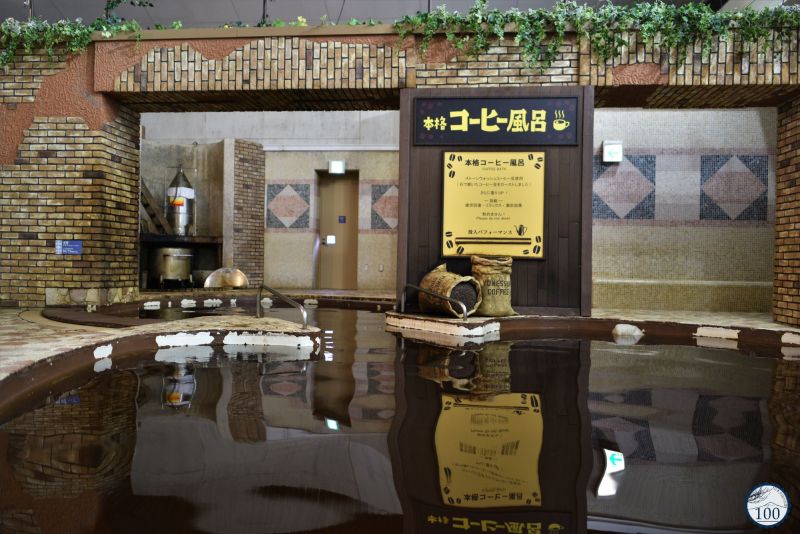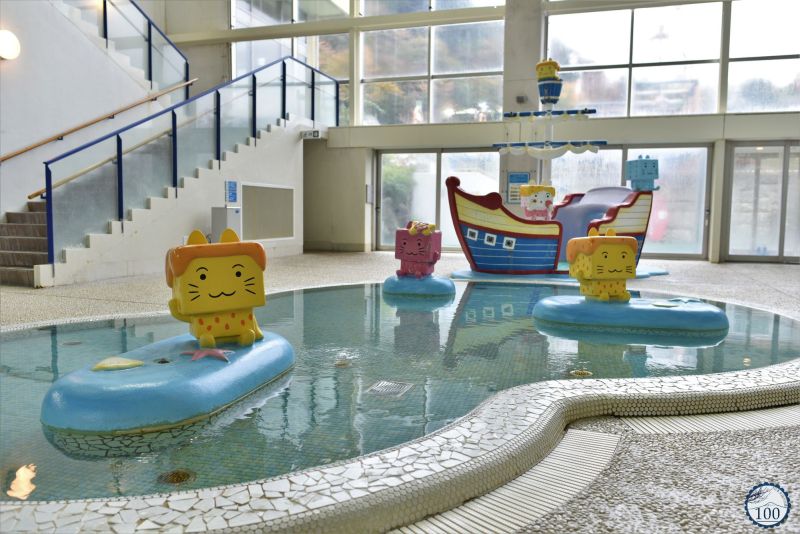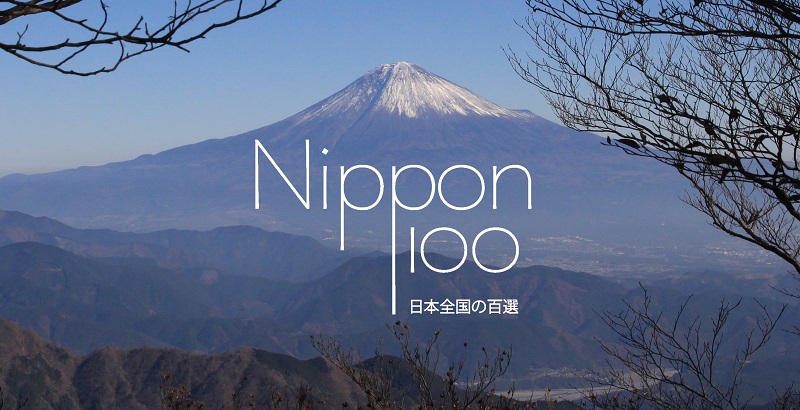Every year in November, the picture of the Japanese “bathing” in French Beaujolais Nouveau is quite a sight, and is making the headlines of French medias. We have been to Yunessun – where that happens – in order to learn more about the flavored bath custom, which is not so striking on a Japanese point of view, and we ended up spending a good time in a great spa in Hakone, in Lake Ashi area.
Before describing Yunessun and our experience, here are two pieces of context:
- Japanese are not really bathing in wine (which might not be a good idea). The several baths available in Yunessun, including the wine one, are only flavored baths, with small proportions of real tea, real coffee and real wine (or real Beaujolais Nouveau in late November), a few colouring product and thermal water.
- Yunessun is a truly famous and quite beautiful spa resort located in Hakone, in the vicinity of Lake Ashi, and offering great views of Mount Fuji, only one hour away from downtown Tokyo. The flavored baths are available all year round, and are not the only features of the place!

A day at Yunessun
While we were visiting Lake Ashi – which is now the 73th landscapes of the list described on Nippon100 – we took some time to discover the spa resort from which we have seen pictures of, each year at the time of Beaujolais Nouveau, but without knowing more at that time. We were thus very eager to learn more about it.
Every November the picture of Japanese bathing in Beaujolais Nouveau is a famous sight and almost a tradition in French medias, which cover the news since the bath was first introduced in Japan in 2005. But without giving much more context about Yunessun and the Japanese tradition of bathing.


Wine baths in Yunessun
If this peculiar bath is quite surprising from a French, or European, point of view, it is in fact quite normal when contextualized in Japanese strong bath culture. In the onsen land, the flavored bath are quite common, from local specialties baths like apple or yuzu ones to seasonal sakura baths. Which is only a extra option in the process of enjoying a good hot bath.
Many of them, wine included, are supposedly good for the skin. And in Tokyo’s sento too, the public baths of the capital, flavored baths are organized on a regular basis. We have heard (and tried) of lavander or chamomile ones for example.

Back in Yunessun, the red wine bath is a famous feature of the spa, as is the coffee flavored one. There are also the sake and green tea ones, along other regular baths in the swimsuit mixed section. And the huge spa is also famous for Mori-no-yu, the naked area featuring many beautiful hot springs baths surrounded by nature. On the weekends, the place get pretty crowded with people from Tokyo visiting Hakone and relaxing in Yunessun. A convenient overnight option – and chosen by many visitors – is the neighboring Kowakien hotel, which we also had the chance to enjoy.




The swimsuit area features an impressive bath with many massaging jets and whirlpool areas. Another smaller one is dedicated to kids, while a restaurant is also available onsite. While bathing and enjoying the place, purchases are made with the bar-code located on one’s locker key. And the final bill is to be paid when checking out.



Finally the naked area – the onsen one – offers many beautiful baths, both in and outdoor. Which are by themselves a good-enough reason to visit the spa in Hakone!





How to get there?
Hakone and Lake Ashi area, where stands Hakone Kowakien Yunessun, is really easy to reach from Tokyo Shinjuku (see “How to get there?” at the end of our post dedicated to the area). Many buses from several networks are running around, and the spa is logically located at the one named Yunessun-mae.
Three different entrance tickets are available. The one allowing to access both the naked and swimsuit area costs 4100 yen for an adult and 2100 yen for a child. Going only to the spa costs 2900 yen (or 1600 for kids) while the entrance to Mori-no-yu is the cheapest, at 1900 yen (1200 yen for childern). It is also possible to rent towels, swimsuits and clothes for a few hundreds yen.
Finally, entrance to Yunessun is forbidden to tattooed people, just like in many high-end spas in Japan.



